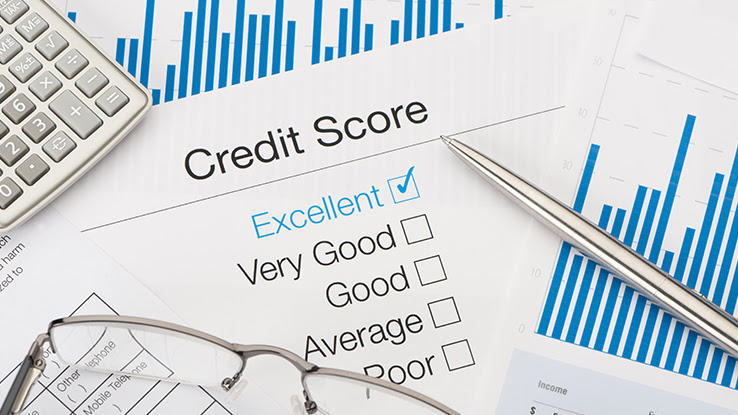How to Check Credit Score Without Social Security Number

If you're thinking about applying for a student loan, a new home, or a new car, checking your own credit is a great first step. There are a few easy ways to check your own credit score online. The best part is that many of these options are free of charge. From checking your score through your bank account to downloading your full report, we've rounded up everything you need to know about checking your credit score.

To get the full picture of what your score looks like, you'll want to download a report from each of the three reporting companies. Those three companies are TransUnion, Equifax, and Experian. Your score may vary slightly between each of these agencies so it's always good to check them all.
To get a free credit report from all three agencies, you can start with the Federal Trade Commission (FTC). All U.S. citizens are eligible to download their credit report once per year for free from the FTC on annualcreditreport.com. This is the only authorized, free credit report provider offered by the U.S. government. To learn more visit ftc.gov to download your free annual report. You can do so once a year from each of the three credit reporting agencies.
In addition, you can also order a copy of your credit report from the three credit reporting agencies individually. Visit Equifax, Experian, or TransUnion to download a report and check your score. There is a fee to do so but you're able to download as many reports as you'd like throughout the year. Each company also offers credit monitoring services to keep an eye on your score.
Your bank or credit card company may also offer free tools to check your credit score. While you won't be able to download a full report, you will be able to check your score quickly when you log in to your bank's website or on their app. This is a free and easy way to see your score whenever you'd like.
What is Considered a Good Credit Score?

A credit score is used to determine your creditworthiness. This number shows lenders how responsible you are with your money and payments. A good credit score shows that you make your payments on time and you have a responsible amount of debt. A low credit score will often reflect missed payments, late payments, and a higher amount of debt.
A credit score will range between 300 and 850. According to credit.org, a score of 300-549 is considered bad. A poor score will range between 550 and 619. A fair score ranges between 620 and 679. A good score will be between 680 and 739. An excellent score ranges between 740 and 850.
The Importance of a Credit Score

Your credit score can affect everything from your loan interest rates to your ability to get a job. Employers, lenders, and mortgage companies are just a few of the people who may check your credit score. If your credit score is low, this shows your lender that you may be a risker candidate for financing. In order to lessen their risk, they'll charge more for interest and other fees. The better your credit, the more favorable your loan terms will be.
An employer may also run your credit when you're applying for a job. If you have a low credit score, this may tell an employer that you've had financial troubles or that you're irresponsible with credit. A high score shows trustworthiness and responsible financial choices.
The good news is that there is always room to improve your score. While it takes time, a credit score isn't permanent. As you make payments on time your score will go up. There's always time to turn your score around.
Is it Safe to Check my Credit Score Online?

Applying for new credit will also reflect on your credit score. If you go on a spending spree trying to open multiple credit cards at a time, the reporting agencies will take note of this. For that reason, when your credit is checked (sometimes referred to as being "pulled") by a lender or credit card company, that's a "hard pull" that tallies on your credit report. If you're applying for a mortgage or a car once every ten years, this won't affect your score. Too many pulls in a short amount of time, however, will bring your score down.
Checking your own score, however, doesn't count as a hard pull. If you check your credit score yourself through your bank, for example, this doesn't get reported as a credit pull on your report. This means there's no penalty for checking your own score or downloading your own credit report as often as you'd like. In fact, banks encourage you to do so for a better picture of your finances.
How to Improve Your Credit Score

A credit score isn't a frozen number. Your score will go up and down over the years. Having a high credit card balance or missing payments will lower your score. Making your payments on time and not utilizing all your available credit is a great way to boost your score. Your credit utilization ratio weighs heavily on your score. Let's say you have a credit card limit of $10,000. If your credit card balance is only $50, this means you're barely using your available credit. This is great for your credit score.
To easily give your score a boost, pay off as much of your high-interest debt as possible. Don't open any new lines of credit. Make all your payments on time each month. Even if your credit limit is raised, keep your credit card balance low. A negative ding on your credit will stay on your report for two to ten years. If you filed for bankruptcy, for example, after ten years this will fall off your credit report. Missed payments or accounts closed in bad standing can stay on for up to seven years, so it's important to keep those to a minimum.
MORE FROM ASKMONEY.COM

How to Check Credit Score Without Social Security Number
Source: https://www.askmoney.com/credit-cards/how-to-check-your-credit-score?utm_content=params%3Ao%3D1465803%26ad%3DdirN%26qo%3DserpIndex